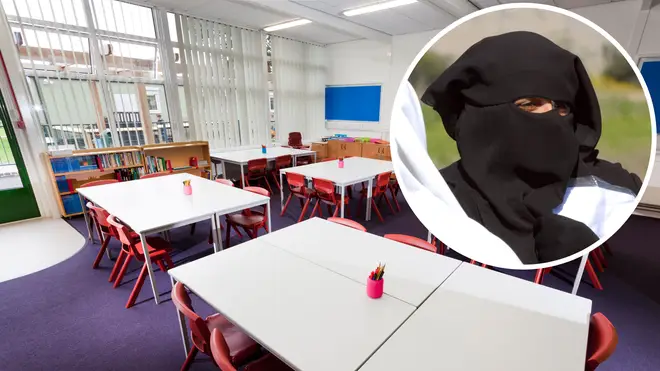
Clive Bull 1am - 4am
20 April 2022, 08:36 | Updated: 20 April 2022, 08:38

Banning Islamic veils in French schools saw Muslim girls achieve better grades and led to an increase in women marrying outside of their religion, a new study claims.
Wearing a veil was banned in all schools in France in 2004 alongside other "ostentatious religious signs" after 70 percent of the nation felt that the veil was an obstacle to the country's national unity.
The move was met with criticism from religious leaders who feared the ban would see an increase in persecution but new research suggests the law significantly improved education for Muslim girls.
Statistics show that before the ban was introduced, Muslim women were around 12 per cent less likely to complete high-school compared to their peers.
After the ban was implemented, the gap closed to 6.5 per cent and research suggests around this time period, Muslim women began to marry outside their religion.
Read more: Harry says he’s ‘making sure the Queen is protected and has the right people around her’
Professor Eric Maurin, a co-author of the study, said: "For students who wore the veil, the ban may have had a negative effect on those who were most attached to it, as it may have led them to drop out of school.
"But the ban may also have had a positive effect on students who were forced to wear the veil and on students suffering from stigmatisation and discrimination in school because of it.
"When comparing women in the Muslim group to those in the non-Muslim group, the data reveals a very significant increase in educational attainment in the Muslim group for the cohorts that attended middle school and reached puberty after the ban.
"This increase clearly coincides with the implementation of the circular: the more years the Muslim group women spent in middle school after the circular the higher their educational attainment."
Read more: Boris 'orders Tories to block new Partygate probe' as he defies calls to quit
The new findings comes as right-wing presidential candidate Marine Le Pen vowed to implement a nationwide headscarf ban in public areas if she won the election.
The politician described the hijab as part of the "Islamist uniform" claiming it was "imposed over time by people who have a radical vision of Islam".
Speaking about her plans to ban the religious clothing item, she said: "Women who don’t wear it are isolated, are victims of pressure, and insulted.
"I won’t tolerate this, all women in France must be able to live completely free."
With an estimated five million Muslims in France, headscarves are commonly worn by many Muslim women.
But over the weekend, the presidential candidate seemingly relaxed her headscarf policy as she noted that the issues involve "complex problems" and that "there will be debate".
It comes after reports suggested the policy was hampering her popularity in the run up to the election.